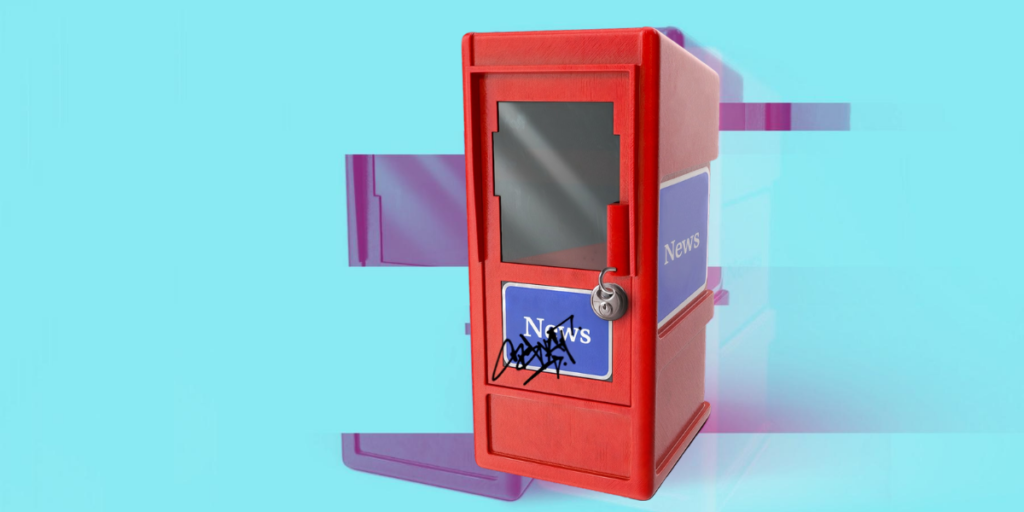Your Supplier Made The News … For The Wrong Reasons. What Does This Mean For You?
What should you do if your supplier ends up in the news? Here’s what effect it could have on you and how you should mitigate the damage.

Let’s face it, 2020 has been the year that changed everything. Anytime you even go near a media website, you’re hit in the face with the latest pandemic disasters.
Yet the domination of the news with COVID crisis has meant that there’s little room for much else, which, strangely, may have been a blessing in disguise for some of our organisation’s PR departments – and our own supply chain obligations. From whispers that much of the world’s current PPE is currently the product of modern day slavery to suppliers who have been caught out using substandard (and even contaminated) ingredients in food, there’s mounting evidence that while we’ve all been distracted this year, supplier standards may have been slipping. And while that may not have spelled disaster for us just yet, what do we do when the news catches up with them?
It’s not good for them, and it’s not good for you. Here’s why … and what you should do about it.
If your supplier makes the news, will your customers blame you?
If you think that your customers are savvy enough to distance you from the reputation of your suppliers, think again. Ever since the Nike sweatshop scandal rocked organisations worldwide, it’s been clear that if your suppliers take a fall, you will too – and it can be highly damaging, if not deadly, to your reputation going forward. Businesses are just as – if not more – responsible for their suppliers than ever before.
Concerningly, recent research has also found that even when a supplier mishap has, in essence, nothing to do with your product quality, consumers will still start to believe that your product is inferior. This means that if you were to have something like a COVID outbreak in your factory and it was widely publicized, even if you were able to maintain production, your reputation would still be tainted in your consumer’s eyes. Unfortunately, the reputational damage occurs no matter what the issue is: even if, for example, your supplier was caught polluting or even embezzling, your reputation would be the one to take the hit.
If this sounds terrifying, it’s because it is. Even worse, conditions are currently ripe for it to happen. With our supply chains becoming more and more global and complex, it’s becoming harder and harder to track the activities of our suppliers, let alone our second and third tier ones. And with the rise of social media, the world is becoming more and more savvy – and any issues are becoming more likely to be exposed. Take, for example, Change.org’s famous campaign against Hersheys, which exposed, through social media, the continued use of child labour in its cocoa production in Africa, and forced the company to quickly change track.
The conclusion? If your supplier has something to hide and the media finds out first, you need to be prepared to weather the reputational and financial hit.
If it’s just slightly bad news, does it matter so much?
As talented and thorough procurement and supply chain professionals, most of us already have an oversight of the worst risks and issues within our supply chain – and thankfully, we’ve mitigated them. So if something small slips through the cracks, will it really matter?
Unfortunately, yes. Firstly, humans have a predilection towards bad news. Decades of psychological research have shown that we’re all naturally drawn towards bad news, so much so that even if nine out of the ten news stories we read are positive, we’ll always remember – and act on – the negative one. What this means is that we, as supply chain professionals, need to be extra cautious about what mishaps might slip through the cracks.
Secondly, consumers don’t rationalise the ‘degree’ of bad news. In what psychologists call the ‘spillover effect,’ consumers were found to equally condemn companies for supply chain failures, even if the news wasn’t, technically, that bad. On every occasion, bad news in the supply chain meant that consumers were less willing to buy from the organisation for an extended period of time.
How do you mitigate the damage?
By now, you’re probably frantically checking and rechecking all of your suppliers, terrified that something may have gone wrong. And while the response is justified, and we should always aim to have as much insight as possible into our suppliers, know this: you can mitigate the damage done if your suppliers do end up in the news for the wrong reasons.
And the best way to do this is to simply try to help find a solution, and communicate this to all involved.
In positive news, research into the spillover effect has found that while damage can be done quickly, it can be undone at just the same speed. Organisations that act quickly to rectify issues, for example, those who instantly clean up environmental spills or put an end to labour issues, can rescue their reputation, if they take responsibility and put mechanisms in place to do better. And while consumer’s buying behaviour may not revert instantly, if you are able to win back the trust of your customers, the damage need not be long term.
Managing risk and reputation
Given the complexity of supply chains these days, maintaining accountability of your suppliers has long been an issue, especially when it comes to tier two or three suppliers. Yet just because this task is challenging, it doesn’t mean it isn’t important. Thankfully, if reputational damage does occur, it is possible to reverse it. But do we want to take the risk of finding out?
Has your supplier ever ended up in the news? What did you do about it? Let us know below.